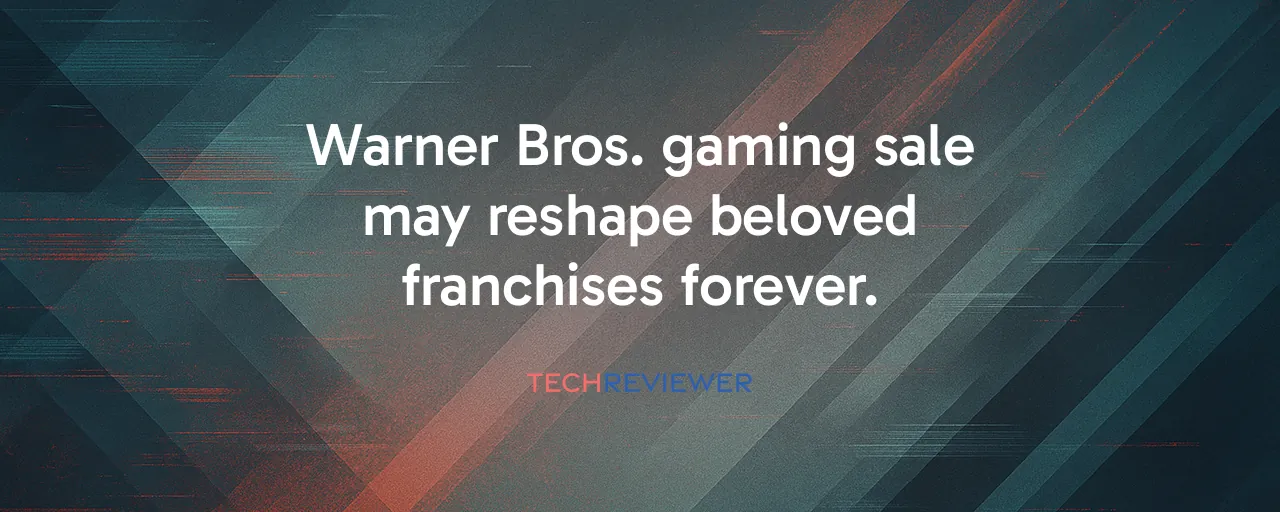A Blockbuster Sale Looms
Warner Bros. Discovery announced on October 21, 2025, that it has initiated a review of strategic alternatives to maximize shareholder value, following the rejection of a $20-per-share offer from Paramount Skydance. The decision follows a tough year for its gaming division, which saw a 48% revenue drop in Q1 2025 after the disastrous launch of Suicide Squad: Kill the Justice League. With studios like NetherRealm and Avalanche Software under its wing, the sale could shake up beloved franchises like Harry Potter, Mortal Kombat, Game of Thrones, and DC Universe. For gamers, this news sparks excitement and worry, as new ownership could either fuel blockbuster sequels or derail fan-favorite projects.
Hogwarts Legacy's Magic at Risk
Hogwarts Legacy sold 30 million copies by October 2024, generating over $1 billion in revenue and claiming the title of 2023's best-selling game in the US. Its success proved Warner Bros. Games could deliver a polished open-world RPG when given time and resources. A sequel is already a priority, with plans to tie into HBO's upcoming Harry Potter TV series for a cohesive story across media. But a sale could disrupt this momentum. If a tech giant like Amazon snaps up the gaming division, we might see Hogwarts Legacy sequels tied to Prime or Luna platforms, limiting access for some players. On the other hand, a media conglomerate like Comcast could double down on transmedia storytelling, blending games and TV seamlessly. The catch is that new owners might shift priorities, leaving fans waiting longer for the next wizarding adventure.
Mortal Kombat's Fight for Stability
Mortal Kombat has been a consistent success for Warner Bros. Games, with over 80 million copies sold across its history and Mortal Kombat 11 moving 15 million units alone. NetherRealm Studios' expertise in crafting tight, cinematic fighting games keeps the franchise thriving in competitive circles. Yet, the potential sale introduces uncertainty. A buyer like Sony could push for PlayStation exclusivity, splitting the community across platforms. Alternatively, a private equity firm might focus on milking existing titles for profit rather than investing in new ones. The franchise's reliable revenue stream makes it a safe bet, but developers and fans alike brace for changes that could disrupt tournament support or DLC plans.
Lessons From Past Gaming Mergers
Microsoft's $68.7 billion acquisition of Activision Blizzard in 2023 offers a glimpse into what might await Warner Bros. Games. After a 20-month regulatory battle, Microsoft kept studios like Treyarch intact, ensuring Call of Duty's steady release cadence. The deal required concessions, such as 10-year platform-sharing agreements, suggesting a Warner Bros. sale would face similar scrutiny to avoid market monopolies. In contrast, Embracer Group's collapse after acquiring 130 studios illustrates the risks. When a $2 billion deal fell through in 2023, Embracer Group shuttered 44 studios and cut 7,761 jobs, leaving projects in limbo. These cases highlight the stakes: a thoughtful buyer could nurture Warner Bros.' franchises, while a misstep could lead to layoffs and cancellations, as seen with Monolith Productions' closure in February 2025.
What Gamers Stand to Gain or Lose
For players, the sale raises big questions about access and quality. A tech company buyer could pour resources into franchises, leveraging advanced tools like Unreal Engine to enhance games like Game of Thrones: War for Westeros, set for 2026. But there's a flip side. Platform exclusivity could lock out fans, and digital storefront changes might make older titles harder to access. The MultiVersus shutdown showed how live service games can vanish, leaving players empty-handed. Meanwhile, developers face job insecurity after the industry's 10,000-plus layoffs in 2024. A sale could bring stability with a committed buyer or spark chaos if cost-cutting takes priority. Gamers and creators are left hoping the new owner values the magic of these franchises as much as they do.
